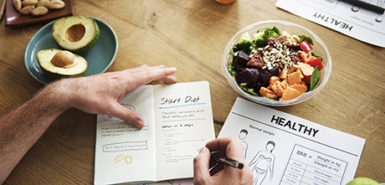
As parents, there are times when we struggle with rewarding our kids.
We don’t necessarily struggle with the typical thoughts of, “Should I reward them?” or even, “When should I reward them?” Those are pretty easy to answer. We all want to encourage valuable behaviors at home and school, and proper rewards are useful.
No, the struggle we have is in the “what.” As in, “What can I fairly reward them with?”
Who among us hasn’t used the worn-out line: “If you eat all your vegetables, you can have some ice cream.” Or: “If you clean your room, you can pick out a piece of candy.”
I can’t even begin to think of some of the things I’ve offered when it came to the dreaded topic of potty-training.
All too often, the easy, go-to reward is a cheap, convenient sweet treat.
They’re present everywhere, in every circumstance. At the grocery store checkout, at school, at church, at athletic events and even at home.
The sweet treat train is always running, dishing out daily doses of delectable rewards.
While all these rewards are given with caring thoughts and good intentions, the reality is that much of it is often high in fat and added sugars. This is where the good intentions start to take a wrong turn.
Oftentimes, this consistent offering of sweet treats can create a sweet preference in our kids. The lines can blur further as an emotional connection with food is being built.
It begins to solidify a tricky thought process: “I did something good, I should be rewarded.” Over time it can even normalize and encourage acceptance of certain foods, even when we’re not hungry.
How can we as parents help set a healthy stage for our kids? Consider rewarding good behavior or accomplishments with non-food rewards.
Here are some examples your kids will love:
- Praise and recognition
- Stickers, pencils, or notepads
- Reading extra books before bedtime
- A planned family activity, such as trips to the zoo, the movies, or a park
- Picking a chore to skip for the day
- Outdoor activities such as hiking or bike rides
- Making an accomplishment announcement at the dinner table
- Taking a seat at the head of the dinner table for the night
Talk to your kids about the importance of regularly eating healthy foods and show them—by example—how to limit the special treats.
It is possible to slow down the treat train. You’ve just got to get everyone on the right track.
 /a>
/a>
 /a>
/a>
 /a>
/a>
Excellent article on the idea of looking at food as it’s meant to be – a way to nourish your body rather than a reward. Well done.
Fun activities suggested rather than sweet treats is always more favorable whether you are young or old….keep the momentum going in a positive direction!!